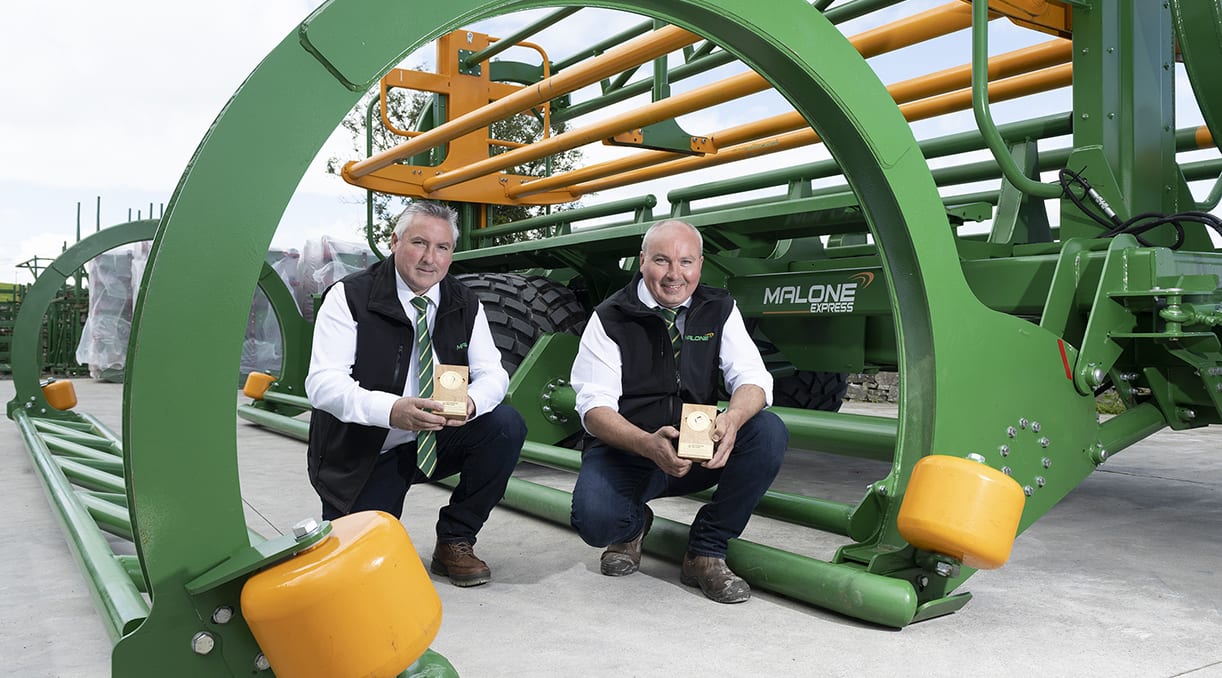 Innovation emerges when problems need to be solved, so it’s no surprise that some exciting technological advances are coming from one of our most important indigenous industries, agriculture.
Innovation emerges when problems need to be solved, so it’s no surprise that some exciting technological advances are coming from one of our most important indigenous industries, agriculture.
For many years, Enterprise Ireland’s Innovation Arena Awards in association with the National Ploughing Association has been an important showcase for entrepreneurs presenting agri-related solutions to the industry. In 2020, with the National Ploughing Championships cancelled due to the Covid-19 pandemic, the awards moved online for the first year; with the event in doubt again amid ongoing restrictions, the 2021 awards are now launching online once more.
“This is the 11th Innovation Arena, and the eighth that Enterprise Ireland has been involved in,” says Enterprise Ireland’s Senior Regional Development Executive James Maloney. “The entries are based around efficiencies in agriculture; that can be from engineering or science, we’re also seeing a lot from the IoT [Internet of things] or robotics side recently, or how technology is helping to modernise agriculture.”
There are 12 awards in total, with a €5,000 cash prize for each of the winners of the Best Start-Up Award and the Overall Award. Most importantly, however, the awards offer a platform for companies to showcase their solutions to a global audience, which could include potential customers and investors.
“Last year, the winners of the Overall Awards were Malone Farm Machinery in Mayo, with their Malone Express, a 16-bale trailer that can accommodate 16 round bales on a shorter chassis. Their piece on YouTube attracted 17,000 views in the first week. Because of our global network in Enterprise Ireland, the awards get quite a bit of traction abroad, and Malone would have had interest from overseas markets such as the US, France and Canada. The awards also have the capacity to change the mindset and ambition of the company; for instance, now a company in Mayo can produce machinery for a farmer in the US.”
Finding solutions
A 2018 McKinsey report revealed that agriculture is one of the world’s least digitalised sectors in the world, making the industry ripe for innovation, particularly in terms of finding solutions to improve efficiency, sustainability and sector-specific issues such as disease control and carbon emissions.
“We’ve always been good at farming and good in research; now it’s about bringing science, technology and agriculture together to create solutions,” says James. “The opportunities are there too – agri-engineering exports are worth just over €500 million to Ireland, while agriculture-related exports were worth over €13 billion in 2019.”
A big issue for agriculture at the moment is the need to lower carbon emissions. “Innovation for a green future in agriculture is a priority for us this year,” says James. “We’ll be looking for innovations that can reduce emissions, improve efficiencies and promote sustainable agriculture for the future. A good example is the winner of the Sustainable Agriculture Award last year, Hexafly, which essentially produces protein from black soldier flies. This is a very environmentally friendly way of producing protein for animal feeds, and is currently being used for fish food at present. As things develop, it could be used elsewhere in the food chain to replace more carbon-heavy protein producers.”
The need to improve efficiency and reduce waste is also attracting new ideas. “We’ve also seen innovations in using technology and sensors to help farmers optimise the nutrition of both crops and animals, providing benefits on production costs, while also protecting the environment. For instance, if a plant doesn’t need certain nutrients, there are sensors emerging to recognise these characteristics partnered with software to deliver the data to the farmer, to make informed decisions based on science and information.
“Antibiotic efficacy is a concern across the globe. Micron Agritech has a solution that allows farmers test for worms onsite to determine whether an animal needs an antibiotic treatment or not. The goal of innovative new technology and is to move away from broad-spectrum treatments, into more targeted applications, saving money and reducing resistance and protecting the future for all.”
There are also many companies using emerging technology to find solutions needed by the global agricultural sector. An example is last year’s winner of the Best Start-Up Award, artificial intelligence and robotics company Iamus Technologies, which is collaborating with a large poultry processor to use its technology to continuously gather data from birds, providing feedback that could save the poultry industry billions of euros annually.
Entering the awards
The Innovation Arena Awards is now accepting entries from entrepreneurs with a working prototype or finished product through the Enterprise Ireland website.
“The entry process is very simple,” James explains. “The application form asks for a 250-word description of your company, what you do, and the problem that your innovation solves. These entries are shortlisted for the next stage, which involves a more detailed entry form and in the past, a pitch on the Innovation Arena stage at the Ploughing Championships; this year, it’s more likely to be a virtual presentation and questions/answers.
“You can decide what category to enter; occasionally, we may advise that another category is more suitable. All categories are eligible for the top award and cash prizes of €5,000 for Overall Winner and Best Start-Up.”
Entries for the 2021 Innovation Arena Awards are open until the end of June 2021. Full application details can be found here.


